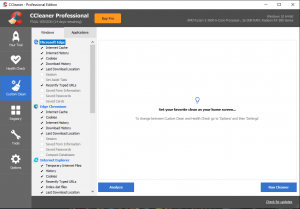The view from the provider side
By ALISON DANCE
THE room is filled with the sound of tapping on computer keys. Printers spit out papers and the smell of fresh ink mingles with excited chatter as the class finishes their first Freedom of Information (FOI) requests. Dreams of being the next big headline fill their minds knowing as civilians they can ask for unpublished documents from any government agency that is not exempt. They press send on emails and slide letters into the nearby post box neatly addressed to “The FOI Officer”. They leave class satisfied the first step of their assignment, due in weeks to come, is complete and the request is forgotten.
Meanwhile, on the other side of computer screens and at the end of mail runs, FOI officers are working on the students’ requests. For some this is a regular phenomenon, for others the sudden influx of legal requirements is a rare event. This is not an assignment for these officers, this is a requirement bound by strong FOI legislation. In one fortnight a response must be sent to the applicant informing them of the receipt of their request, in one month they must inform the applicant of their decision to allow or prevent them from accessing the documents. It is a lengthy process requiring the officers to find the documents, liaise with the relevant department and applicant and determine if it breaches privacy laws or if a third party is involved in which case an additional 30 days is allowed. Charges have to be accurately calculated as the legislation allows for no differentiation between applicants. It is a challenging process under such strict time frames.
Jasen Higuchi is one of three legal officers who deal with FOI requests in the legal services branch of the Department of Climate Change and Energy Efficiency (DCCEE).
He agrees the time frames dictated by FOI legislation are difficult.
“The FOI process is very much governed by a statutory time frame, it’s quite challenging. We need to be diligent with the FOI legislation and time frames especially in current times,” he said
He believes many individuals who lodge FOI requests do not realise the extent of work required to complete them.
“Lots of people apply without realising the amount of work it is for the government department,” he said.
This is one reason why DCCEE charges for FOI requests which require them to determine a reasonable price and decide who can have charges waived, although the Information Commissioner helps regulate this.
FOIs have been viewed negatively in the past but in current times it is considered positive for the public to actively seek information.
“There are different views across government departments about how to manage FOIs and what the role of FOI communicators should be. We (DCCEE) view them as a positive and helpful thing,” he said.
Mr Higuchi was the FOI officer who responded to my request which would have required a $132.40 payment for the documents so I chose withdraw this request.
My second FOI request saw the application of the section of the Act which requires a mandatory transfer of a request if the request is more closely associated to another agency.
Originally my request was sent under federal FOI legislation to the Department of Education, Employment and Workplace Relations but following discussions with them it was transferred to the University of Canberra’s FOI officer.
Although the University is governed by state FOI legislation it recognised the intent of my request and I was contacted asking for clarification or a meeting which I later arranged as an interview.
David Hamilton, the Director of the UC Group Chief Operating Officer, manages the University’s FOI coordination of legal services along with audit and risk, governance, contract development and quality control.
When I meet Dr Hamilton for our interview he is delighted to speak to me. His eyes shine behind his glasses, his smile is highlighted by a white beard and the up turned corners of his moustache give him a friendly presence.
He was surprised by my request as FOIs are rarities to the University with well over 90% of cases where information is sought from the University being completed without the need for an FOI request.
An information sheet by the ACT Government Chief Minister and Cabinet explains documents can often be obtained without the need for an FOI request.
“It’s a rare thing [FOI requests] for the university,” Dr Hamilton said. “People are often looking for information but they ring up and ask where they can get some and in general they get it without going through the FOI process.”
I believe this and the workload explain why I was asked to withdraw my request under no pressure although I chose to continue with it and found the university to be very helpful.
Dr Hamilton believes people should be interested in accessing information and the university tries to support this.
“The university recognises that information is important, it’s an important responsibility of ours and we do it as a matter of priority. . . ,” he said. “Unlike many institutions we do this for free.”
Concerns of the ability to continue providing free access to information have been raised following the sudden influx of FOI requests, some requiring documents of over 400 pages which need to be found, reviewed by legal experts and released within the legislated time.
“If we start to be overwhelmed by FOIs and those FOIs are very broad ranging and impose a lot of costs on the university then that’s likely to impose an imperative to consider if we do need to charge or not,” Dr Hamilton said. “We’re trying to resist doing that.”
The workloads and legal requirements for these officers made me think of the classroom of students, some merely submitting their requests so they don’t fail an assignment. This caused me to wonder if a grey area has been found in the Media Entertainment and Arts Alliance (MEAA) code of ethics, specifically the 8th ethic which discusses self identification. After identifying myself as a student to the officers I learnt more and although it is my civil right to submit an FOI request, I wonder if I should have identified myself initially.
Some jurisdictions other than the ACT have provisions about vexatious behaviour in their FOI Act and although my actions would not be included in this it is interesting to question if the ACT should establish similar provisions.
I did receive my documents, free of charge, from the University of Canberra. It was three pages of the survey results I had specifically requested but after reviewing the documents and conducting an interview I realised my story on the bottled water ban was dried up.
My interview with Associate Professor in the Faculty of Education Katja Mikhailovich revealed more analysis and research on the ban needs to be conducted before any accurate conclusions can be made.
“This survey was conducted six months after the introduction of the ban so it’s still early days,” she said.
Dr Mikhailovich focused the survey and its results around behavioural changes and awareness of environmental and sustainability issues rather than the success of the ban.
I believe the story was also difficult to achieve because much of the idea came from student assignments which Dr Hamilton explained would require the students’ permission before being released as an FOI document.
I hit the submit button, the finality resounding as my assignment is submitted. I can imagine the relief on my class mates faces as they too near the end of another semester. I think of the FOI officers, still trawling through mountains of information and stressing over legislated time limits and legal obligations. The knowledge I have gained about FOI through this assignment will be incredibly useful to my future as a journalist but perhaps now I will remember the immense workload my requests will cause for those on the other side of FOI.





Be the first to comment!